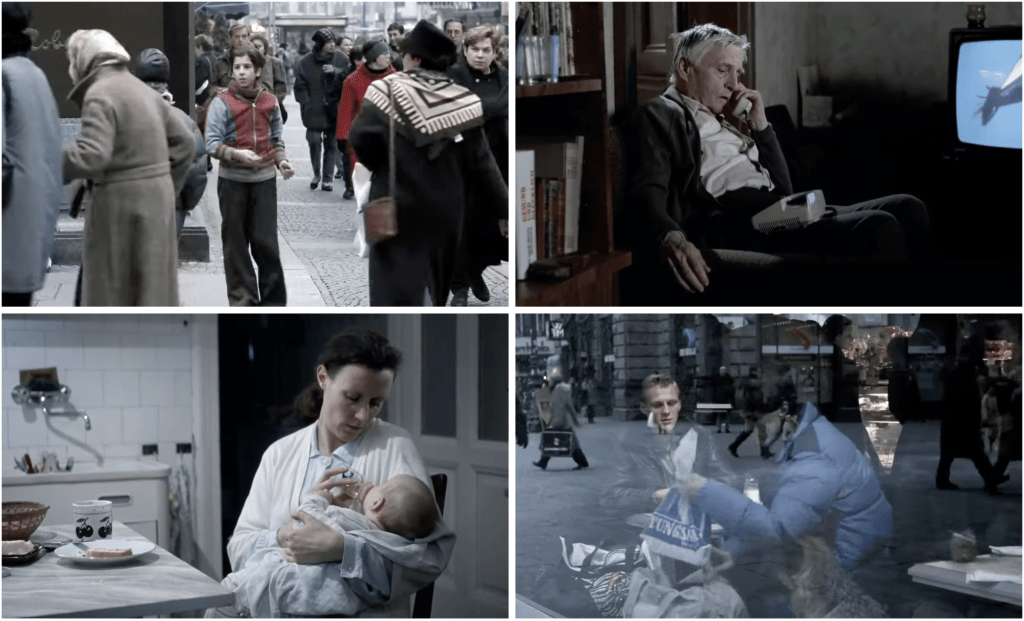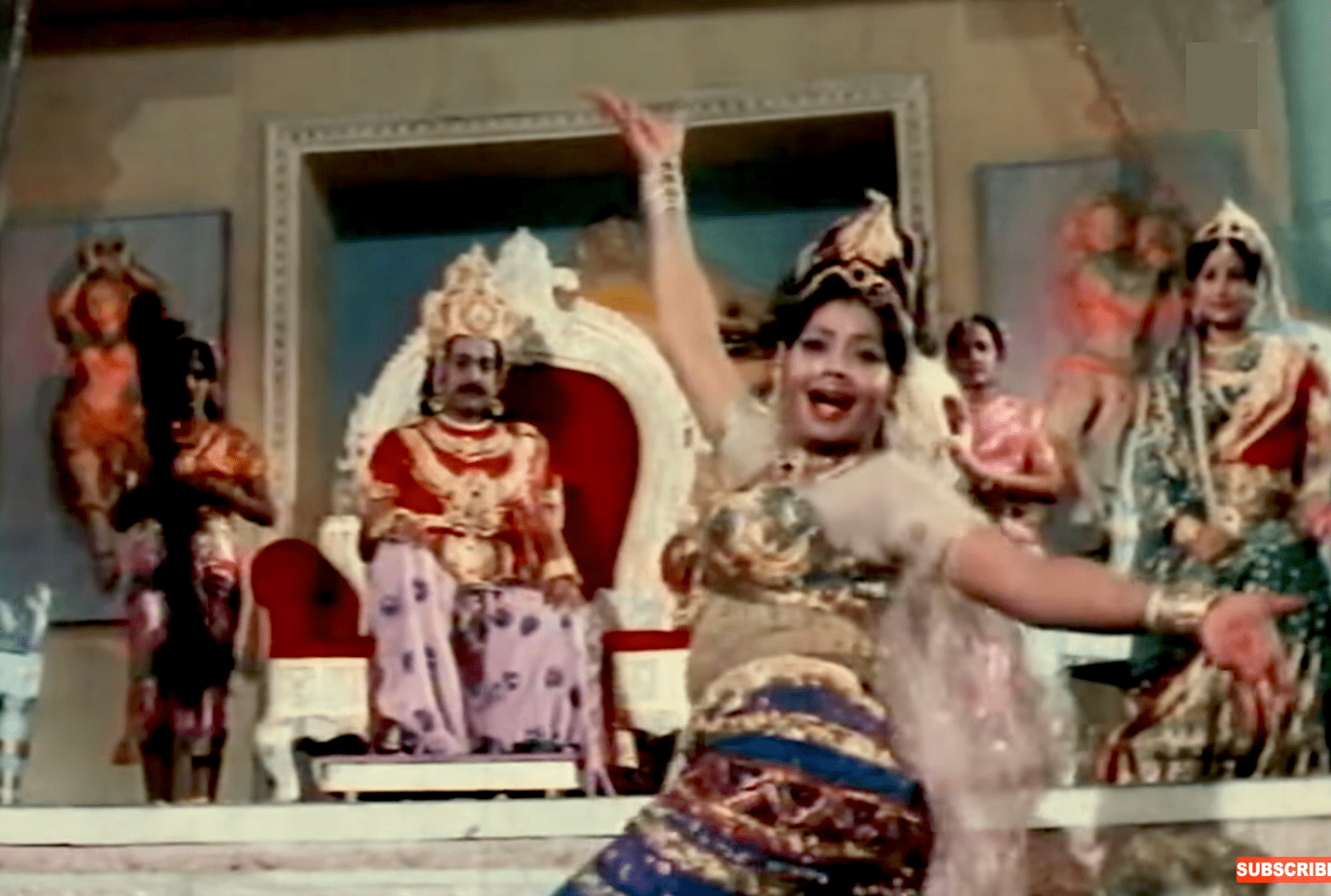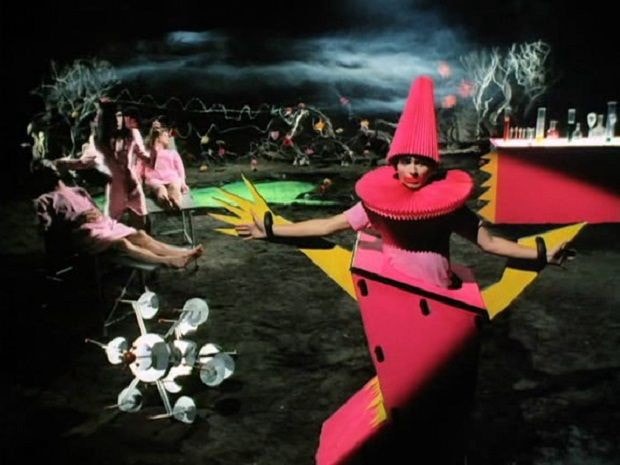
Austrian director Michael Haneke wrote and directed 71 Fragments of a Chronology of Chance in 1994. It consists of 71 scenes.
Our lives have a beginning and an end. The stories we tell about our lives have beginnings and ends, but our lived experience does not. We do not remember the beginning of our lives, and the end can’t be predicted. Our experience of life has no plot resolution, it just keeps going. You can graduate college, get fired from a job, or be crowned king, but that doesn’t end the story.
41:33 - An old man is putting his shirt back on in a doctor’s office. A doctor off-screen says, ”You wouldn’t have these problems if you kept to the diet.” The old man replies, “But I don’t like it.” The doctor asks, “What do you suggest then? Do you prefer the pain?” The old man wants to be the author of his life, but he is constrained by circumstance.

Haneke presents us with fragments of people’s lives. At first, they feel truncated. We are used to scenes lasting longer. We expect a little more development. However, very quickly the film begins to feel like our lived experience. Our lives are full of abrupt changes and incongruous transitions. We see death and mayhem on the news, then we see a cat video, then we put something in the microwave, and then we phone a friend. Haneke’s fragmented narratives are simply true to life.
“I try to get closer to reality, to get close to the contradictions. The cinema world can be a real world rather than a dream world.” Michael Haneke
They say that in dreams, you can never remember how you got to your current location.
“Postmodernity is said to be a culture of fragmentary sensations, eclectic nostalgia, disposable simulacra, and promiscuous superficiality, in which the traditionally valued qualities of depth, coherence, meaning, originality, and authenticity are evacuated or dissolved amid the random swirl of empty signals.” Jean Baudrillard

A narrative is the connection between two or more events.
Suspense is seeing the cause and waiting for the effect. We want to see the outcome because it will give the cause meaning. Without believing in the link between cause and effect, it is impossible to establish meaning or agency. We crave this connection so deeply, people try to convince themselves that, “Everything happens for a reason.”
00:00 - The movie opens with white text on a black screen, “On 23.11.93, Maximilian B., a 19-year-old student, shot three people in a Viennese bank and killed himself with a shot to the head shortly afterwards.” We begin with the effect and then seek out the cause, but Haneke does not provide one. The shooting is one event among many events. It is made banal by its unremarkable context. Many things happened on December 23rd, 1993. One was a shooting.
1:14:39 - A young man invites his friend to play a game of pick-up sticks and announces, “This is skill against chance”

Philosopher Norman Brown claimed that, "Meaning is not in things but in between them.” A single moment, object, or person cannot have meaning, unless it is connected or compared with something or someone else. However, the broader the comparison, the less meaning the event or person has. Comparing one person to another person will illuminate their differences. Comparing one person to a thousand other people will flatten those differences out, and make the individual less distinguishable and significant.
55:53 - A man and woman are having dinner at home in silence. They look tired and a little defeated. Without looking away from his plate, the man says, “I love you.” The woman stops eating and stares at the man for a moment, and then says, “What’s the matter? Are you drunk or what?” The main quietly responds, “Yes, why… not very.” The woman pauses to look at him and then continues, “I mean, what are you getting at? You don’t say ‘I love you’ out of the blue. And certainly not you. So, what do you want?” Again, without looking at her, he replies, “I thought it would be helpful.” Frustrated, the woman asks, “For what?” The man suddenly reaches out and slaps her in her face. They sit in silence. You can see she is thinking over how to react. She almost leaves, but does not. Eventually, she places her hand on his, as if in a gesture of forgiveness.

Time is inexorable. Like a film, it never stops. Coincidences, alignments, near misses, and serendipity are all inevitable.
Death is simple. It is the simplest of all things. You are either on or off.
Ultimately, every horror becomes a story. Each one is encapsulated, given meaning, and stored away so they can be temporarily forgotten. They have to be temporarily set aside, or we could not function.
Throughout the film, different people try to complete a parlor game. They are given 7 oddly shaped pieces of paper and have to arrange them to make a cross. It’s as if the characters are being challenged to see the hand of God in all the strange and random experiences they have had.

We have no recourse but to live in denial. Were we to recognize the veracity of what we saw on the news every day, we would be continually traumatized. We must disassociate to survive.

In the last scene of Sidney Lumet’s 1976 film Network, Howard Beale is assassinated live on TV. Then, the square containing the footage shrinks in size to make way for other squares of footage. An airline commercial, an ad for Canada Dry Club Soda, the nightly news. The squares engulf the frame until his death is nothing more than a brief blip on the screen.
As I write this, 9,369 Ukrainians have been killed, and 16,646 have been wounded. The information is easy to find. I just Googled, “How many people have been killed in the war in Ukraine”, and it popped up in less than a second. I can even have the statistic read to me by my choice of voices. I could have an AI version of Snoop Dogg tell me that 280,000 Ukrainians are now refugees. If I want to, I can click a button and get hundreds of photographs of the conflict, complete with blood and gore, or if I prefer, I can watch videos of it all. I can choose videos taken by soldiers, by reporters, or by civilians. If I want, I can click Google’s “Shopping” button and bid to buy a war trophy, like a dead Russian soldier’s uniform, or a patch from his shirt with the logo of The Punisher from the Marvel comic book on it.

After my war booty is delivered to my door, I can retire to my living room and play a video game of the war. There are several such games based specifically on the war in Ukraine. There is one from Germany called Death From Above.
A narrative is the depiction of desire. Someone wants something.
“The spectacle presents itself as something enormously positive, indisputable, and inaccessible. It says nothing more than ‘that which appears is good, that which is good appears.’ The attitude which it demands in principle is passive acceptance which in fact it already obtained by its manner of appearing without reply, by its monopoly of appearance.” Guy Debord
“Films that are entertainments give simple answers but I think that's ultimately more cynical, as it denies the viewer room to think. If there are more answers at the end, then surely it is a richer experience.” Michael Haneke
Barbenheimer brought in a combined total of $1.78 billion.

If you enjoyed this article you might also enjoy this - https://filmofileshideout.com/archives/noah-baumbachs-interpretation-of-don-delillos-white-noise/



